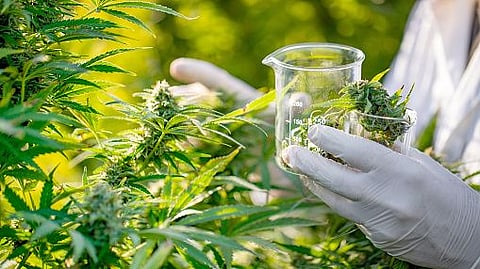

Several minor cannabinoids contained in the cannabis plant “strongly inhibit” the activation of human immune cells that lead to chronic inflammation, according to physiologists at The Queen’s Medical Center and University of Hawaii.
The study also revealed the strongest inhibitory cannabinoid, cannabigerolic acid, disrupts a key mechanism that allows calcium ions to enter and activate immune cells. As a result, cannabigerolic acid suppresses the spread of inflammatory signals.
Chronic inflammation is a biological process in which inflamed tissues release messenger molecules called cytokines. These cytokines recruit immune cells that become activated and maintain the inflammatory response. This chronic inflammation initiates or exacerbates numerous human disease conditions.
“Cannabigerolic acid, either alone or in combination with other cannabinoids, may be a key ingredient in medicines that work to break the inflammatory cycle that maintains autoimmune diseases and chronic pain,” said Reinhold Penner, MD, PhD, co-author of the study. “This could lead to targeted and more specific anti-inflammatory and anti-pain treatments without the risk of serious side effects often encountered with steroids, or non-steroidal anti-inflammatory drugs, or opioids.” (SP/Newswise)
